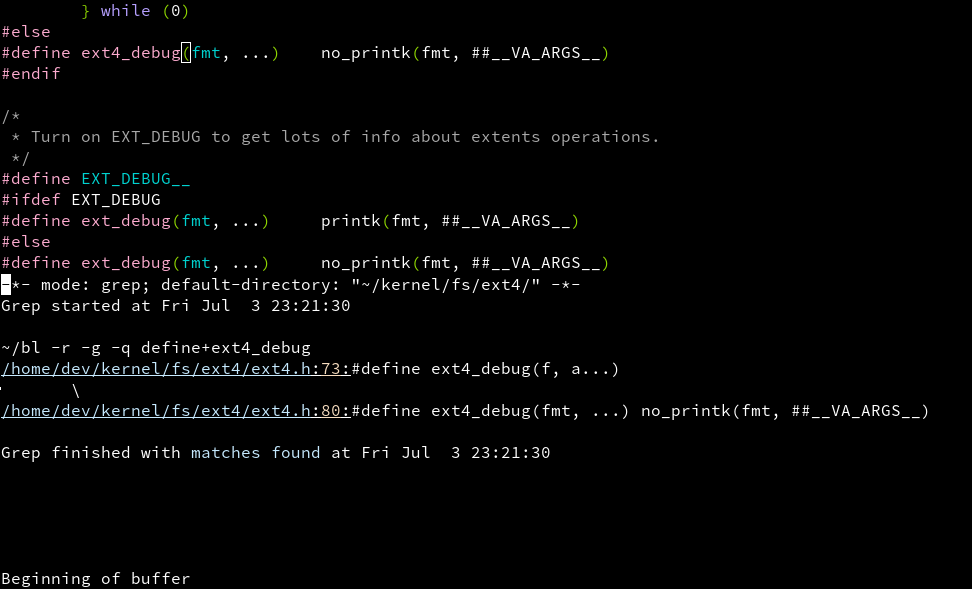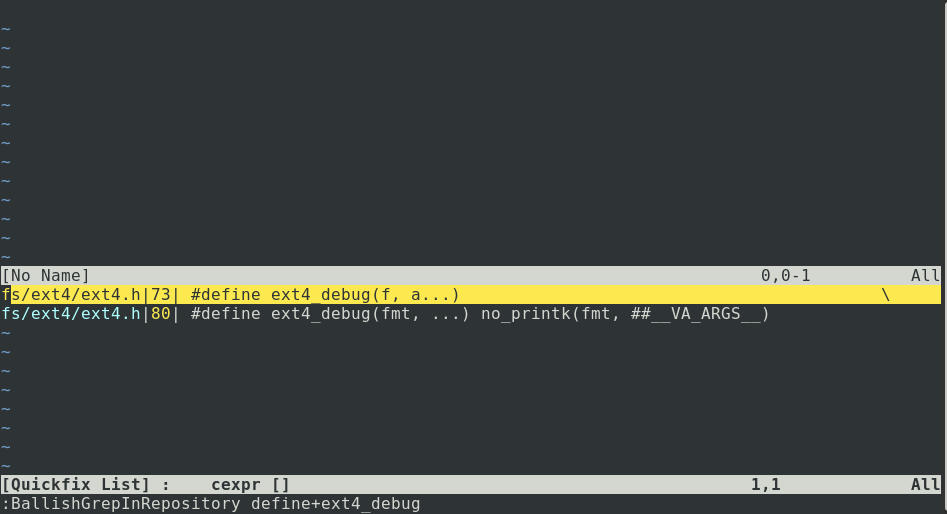Note: this is a Linux-only tool.
Once upon a time, you downloaded a copy of the Linux kernel source code. A few moons later, you decided to look for some debugging facilities in the ext4 filesystem. Because why not?
[dev@tag ~]$ pwd /home/dev [dev@tag ~]$ time bl -q define+ext4_debug -g /home/dev/kernel/fs/ext4/ext4.h:73:#define ext4_debug(f, a...) /home/dev/kernel/fs/ext4/ext4.h:80:#define ext4_debug(fmt, ...) no_printk(fmt, ##__VA_ARGS__) real 0m0.083s user 0m0.053s sys 0m0.030s
Interesting. How often is that used?
[dev@tag ~]$ time bl -q ext4_debug -g -c /home/dev/kernel/fs/ext4/ext4.h:2 [...skipping for clarity...] /home/dev/kernel/fs/ext4/move_extent.c:12 [...skipping for clarity...] real 0m0.084s user 0m0.046s sys 0m0.037s
A bit. Potentially useful.
But wait! This was way too fast. Feels a bit cheating. How much data is this 'bl' actually looking into?
[dev@tag ~]$ bl --status server status: up index size on disk: 2355.89M in-flight files to index: 0 indexed folders: - /home/dev/ - /usr/include/
Oh, that's not bad.
But, you know, you're rather an Emacs lover.

What about vim?

Those are the capabitilies that ballish gives you: a very fast search across all of the code on your machine. All at the tips of your fingers. Integrated in your favorite editors.
Ballish supports dozens of languages. No size limits. No new dependencies to add to make lsp work for your new language. No fiddling with ctags options to make it "mostly work". Instant search results.